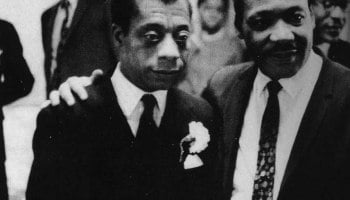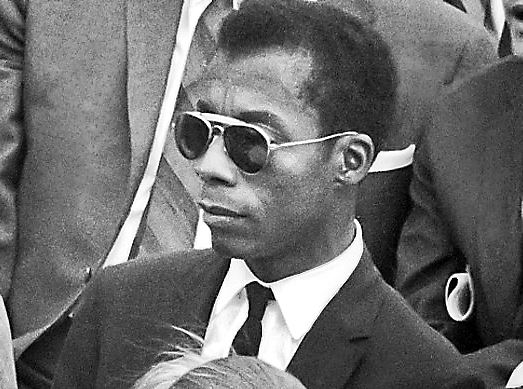“I am Not Your Negro”: Race, Class and Social Justice. The James Baldwin Documentary and the African American Struggle.
Relevance in the United States Today

Racial problems persists decades after African American literary awakenings
Review: I Am Not Your Negro
Filmmaker: Raoul Peck
Narration: Samuel L. Jackson
In the aftermath of World War II the African American people intensified their struggle against Jim Crow segregation for the acquisition of full equality and the right to political self-determination.
This resurgence in commitment towards realizing the objectives of previous generations from the period of slavery through Reconstruction, the Great Migration, the Harlem Renaissance and the Great Depression was exemplified on a literary level.
African Americans had utilized the pen as a method of protest and organization extending back into the 19th century when luminaries such as Maria Stewart, Mary Ann Shadd, David T. Walker, Frederick Douglass, Anna Julia Cooper and Ida B. Wells-Barnett opened up avenues of expression and communications which had global impact.
James Arthur Baldwin, who was born in Harlem, New York on August 2, 1924, represented the reemergence of this literary and political tradition when he began to address the so-called “race problem” in the United States through both fiction and essays. With a string of books during the 1950s and early 1960s such as Go Tell It on the Mountain (1953), Giovanni’s Room (1956), Another Country (1962), Notes of a Native Son (1955), Nobody Knows My Name (1961) and The Fire Next Time (1963), Baldwin became one the most sought after public intellectuals in the mid-20th century.
“I am not Your Negro”: Trailer
The writer’s early life was marked by poverty and a rapidly growing awareness of institutional racism. Baldwin’s step-father was a minister which undoubtedly played a role when the author after a mystical experience took up the ministry at the age of 14. He would later reject preaching and Christianity as a religion and instead became a full-time writer and lecturer by the time he was a young adult.
He would soon move to Paris, France at the age of 24 in order to focus on his writing. He said that France provided him with the creative space to work as the racial situation of African Americans in the U.S. was fueling his personal rage.
I Am Not Your Negro
Raoul Peck’s treatment of Baldwin’s development and social impact utilizes archival television and film footage on both the subject of the documentary as well as productions which reflect the historical and cultural legacy of the U.S. The narration is taken from a manuscript Baldwin was working on at the time of his death entitled “Remember This House.”
The book was autobiographical in character where Baldwin looks into his own personal trajectory through the lives of three pioneering leaders within the African American freedom movement: Medgar Evers, Malcolm X (El Hajj Malik Shabazz) and Dr. Martin Luther King, Jr. All three personalities were intricately involved in the struggle against national oppression and social injustice during the 1950s and 1960s. Evers, Malcolm X and Dr. King were all assassinated for their political beliefs and social practice.
Evers (July 2, 1925-June 12, 1963) as a organizer for the Mississippi National Association for the Advancement of Colored People (NAACP) had played an important role in the investigation into the August 1955 lynching of Emmett Till, a 14-year-old African American youth from Chicago who was brutally slain after allegation were made that he had dared make sexually suggestive comments to a white woman. Till was from Chicago visiting his great uncle near Money, Mississippi when he fell victim to the lynch mob. The two assailants, the husband and brother-in-law of the white woman who lied about Till, although claiming innocence during the trial, later confessed to the killing in a January 1956 interview with Look magazine for the sum of $4,000.
As a field secretary of the NAACP, Evers drew the ire of local white supremacists during the early 1960s. As the movement for Civil Rights escalated through mass demonstrations forcing federal government interventions, he was targeted for assassination on June 12, 1963. Evers was shot to death outside his home in Jackson by a member of the White Citizen’s Council, Byron De La Beckwith.
Malcolm X (May 19, 1925-February 21, 1965) was the national spokesperson for the Nation of Islam (NOI) under the leadership of the Hon. Elijah Muhammad. Baldwin had debated Malcolm X in 1961 over W-BAI radio in New York City on the role of the student sit-in movement and the character of the Civil Rights struggle in general. Baldwin in 1961 seemed to have been more in agreement with approach of the Student Nonviolent Coordinating Committee (SNCC), the Congress on Racial Equality (CORE) and the Southern Christian Leadership Conference (SCLC), headed by Dr. King.
Nonetheless, by 1963, Baldwin would publish his groundbreaking essay entitled “The Fire Next Time.” The book prefigured the rise of urban rebellions, revolutionary nationalism and the demand for Black political power in both the North and the South. By the time of Malcolm X’s assassination, after he had left the NOI and formed the Muslim Mosque, Inc., an orthodox Islamic group, and the Organization of Afro-American Unity (OAAU), patterned on the national liberation movements in Africa and the state-dominated Organization of African Unity (OAU), the Muslim leader and Baldwin were closer together ideologically. Malcolm X was assassinated on February 21, 1965 while preparing to address a public meeting in New York City.
Baldwin was also close friend and supporter of Dr. King and the SCLC. Nonetheless, he appeared to have rejected the nonviolent and direct action approach to the struggle voicing his rage through his books, lectures and media interviews. The SCLC leader was gunned down in Memphis, Tennessee on April 4, 1968 while he was providing support to striking sanitation workers seeking recognition as a labor union.
The documentary captures a segment of the late night ABC talk program then known as the Dick Cavett Show from June 13, 1968, when Baldwin is challenged by philosopher Paul Weiss who criticizes the author for placing too much emphasis on race a major factor in analyzing American society.
Baldwin says that within the U.S. African Americans are kept out of certain labor unions; they are segregated in ghettos by the real estate lobby; and that the school system provides inadequate and racist textbooks for substandard schools that Black children are forced to attend. He notes that this is the evidence of the history and contemporary situation in the country as of 1968.
He then raises the rhetorical question to Weiss emphasizing that this white academic is asking African Americans to believe in a set of ideals which do not reflect the reality of the social situation. Within the theater while the documentary was running people began to applaud Baldwin words which were spoken nearly five decades ago.
Race and the American Crisis in the 21st Century
Consequently, the evoking of these searing questions still has much relevance for the current period in the U.S. The ascendancy of the Trump administration has made many whites comfortable to express their greatest fears through racist demagogy and practices.
This film by Peck makes an important contribution in fostering a dialogue about race, class and social justice. It is good to see Baldwin, who was a highly visible figure in the 1960s and 1970s both through the print media and mass communications outlets, almost resurrected through this documentary. Baldwin died from cancer in France on December 1, 1987.
Similar voices such as Baldwin’s are needed today. This film raises the question as to who are the public intellectuals in the America of the second decade of the 21st century; those activists and thinkers that are immersed in the burning and pressing issues of the day.
This inquiry can only be answered by the younger generation which has recognized the need to continue the revolution to its completion. How this is to be done remains a chapter to be written for the annals of the future.


